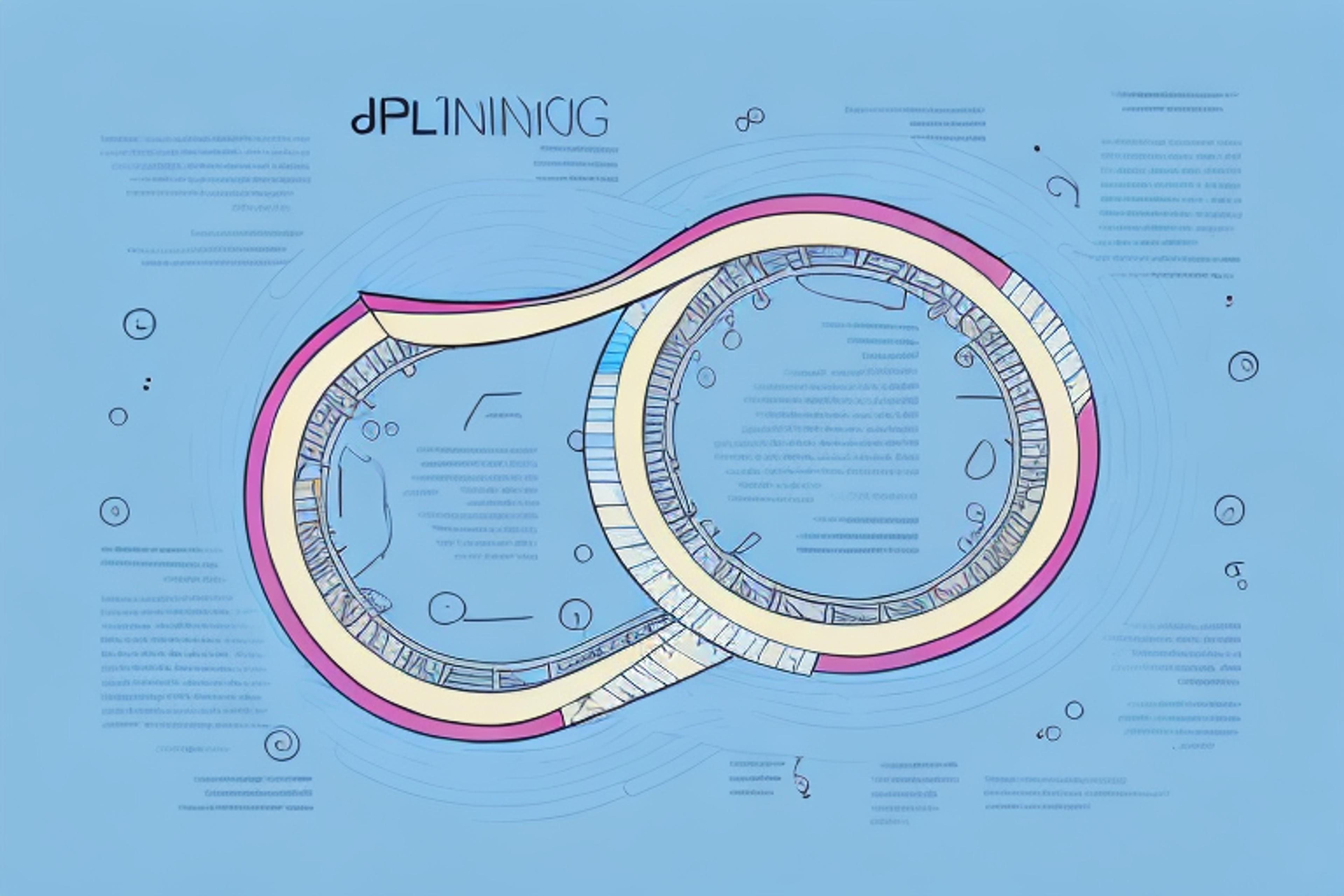How to Prepare for Capgemini Management Consulting Networking Calls?
Learn how to ace your Capgemini management consulting networking calls with our comprehensive guide.
Posted March 6, 2025

Table of Contents
If you are interested in a career in management consulting at Capgemini, networking calls with the company's recruiters and hiring managers are a crucial step in the process. These calls not only give you the opportunity to learn more about the company and its culture, but also to showcase your skills and experience and demonstrate your interest in the available roles. In this article, we'll explore everything you need to know to prepare for and succeed in Capgemini management consulting networking calls.
Understanding the importance of networking calls in Capgemini management consulting
Networking calls are a key part of Capgemini's recruitment process and can often lead to further interviews and opportunities. In addition, they give you the chance to build relationships with the company's recruiters and to learn more about the company's values, culture, and expectations. The better prepared you are for these calls, the more confident and successful you'll be in making a positive impression.
It's important to note that networking calls are not just about selling yourself to the company. They are also an opportunity for you to ask questions and gain insight into the industry and the company's specific consulting practices. By showing a genuine interest in the company and its work, you can demonstrate your passion and commitment to the field. Additionally, networking calls can be a chance to connect with current employees and gain a better understanding of what it's like to work at Capgemini. This information can be invaluable in helping you decide if the company is the right fit for you.
Researching the company and its culture before the call
Before your networking call, take some time to research Capgemini and its values, culture, and mission. This will help you understand the company's needs and priorities, and to tailor your messaging and questions accordingly. You should also research the specific role you are interested in, and review the job description and requirements to ensure you understand the responsibilities and qualifications needed.
During your research, pay attention to any recent news or press releases from the company, as well as any social media or online content that provides insights into the company's values and culture. This will give you a better sense of what the company is looking for in candidates, and how you can position yourself as the right fit.
Another important aspect to consider when researching the company is its competitors. Understanding the competitive landscape can help you identify potential challenges and opportunities for the company, and demonstrate your knowledge and interest in the industry. Additionally, researching the company's clients and partners can give you a better understanding of the company's business model and potential growth opportunities.
Finally, it's important to research the person you will be speaking with during the networking call. Look up their background and experience, and try to find common ground or shared interests that you can use to build rapport and establish a connection. This will help you make a positive impression and increase the likelihood of building a valuable professional relationship.
Identifying your unique value proposition and preparing an elevator pitch
During your networking call, you'll want to be able to clearly articulate your unique skills and experiences as they relate to the role and the company. Take some time to identify your value proposition, or what makes you stand out from other candidates, and to craft a brief elevator pitch that highlights your strengths and qualifications. Your pitch should be concise and specific, and provide tangible examples of your past successes and achievements.
It's important to remember that your elevator pitch should be tailored to the specific company and role you're interested in. Research the company's values, mission, and goals, and incorporate them into your pitch to show how you can contribute to their success. Additionally, practice your pitch beforehand so that you can deliver it confidently and naturally during your networking call.
Practicing active listening and effective communication skills
During your networking call, be sure to practice active listening and effective communication skills. This means actively engaging with the interviewer, asking thoughtful questions, and providing clear and concise answers to their questions. You should also be mindful of your tone and body language, and seek to convey positivity and confidence throughout the call.
Take the time to familiarize yourself with any industry jargon or technical terms that may come up during the call, and be prepared to explain any complex concepts in simple and accessible language. Remember to listen actively to the interviewer's responses, ask follow-up questions, and demonstrate empathy and understanding.
Another important aspect of effective communication during a networking call is to be authentic and genuine. Avoid using overly rehearsed or scripted responses, and instead, speak from the heart. Share your passion for the industry or field, and be honest about your strengths and weaknesses. This will help the interviewer to get a better sense of who you are as a person and a professional, and may even lead to more meaningful connections and opportunities in the future.
Building a rapport with the interviewer to establish a connection
Building a rapport with the interviewer is crucial in establishing a connection and making a positive impression. To do this, seek to find common ground with the interviewer and to demonstrate genuine interest in their perspective and experiences. This can include asking about their own experiences in the industry, or discussing topics of mutual interest or passion.
You should also be mindful of your tone and energy throughout the call, and seek to convey enthusiasm and positivity. Remember that the interviewer is likely evaluating not only your technical skills and experience, but also your personality and cultural fit.
Another way to build rapport with the interviewer is to research the company and its culture beforehand. This can help you understand the company's values and goals, and allow you to tailor your responses to align with them. Additionally, you can use this knowledge to ask thoughtful questions about the company's mission and vision, which can demonstrate your interest and engagement.
Finally, it's important to remember that building rapport is a two-way street. While you should aim to establish a connection with the interviewer, you should also be open and receptive to their cues and signals. This can include paying attention to their body language and tone of voice, and adjusting your own behavior accordingly. By being flexible and adaptable, you can create a positive and productive interview experience for both yourself and the interviewer.
Asking insightful questions to demonstrate your interest in the company
Asking thoughtful and insightful questions is a great way to demonstrate your interest in the company and to showcase your knowledge of the role and the industry. Your questions should be specific and tailored to the company and the role, and should demonstrate your understanding of the company's values and priorities. For example, you might ask about the company's recent projects or initiatives, or about any challenges or opportunities that the role might entail.
Remember that your questions should not be purely self-serving, but should also seek to demonstrate your curiosity and enthusiasm for the company and the role.
Additionally, asking questions about the company culture and work environment can also be beneficial. This shows that you are not only interested in the job itself, but also in the overall experience of working for the company. You could ask about the company's approach to work-life balance, opportunities for professional development, or how the company fosters a sense of community among its employees.
Following up after the call with a thank-you note and further questions
After your networking call, be sure to follow up with a thank-you note to express your appreciation and reiterate your enthusiasm for the company and the role. You might also use this opportunity to ask any remaining questions or to seek further clarification on any topics that were discussed during the call.
Your follow-up should be personalized and specific to the interviewer and the conversation that you had, and should demonstrate your attention to detail and your commitment to building relationships.
In addition to expressing your gratitude and asking further questions, it's also important to mention any key takeaways from the call. This could include specific skills or experiences that the interviewer mentioned as being important for the role, or any insights you gained about the company culture or industry trends.
Another way to make your follow-up stand out is to offer something of value to the interviewer. This could be a relevant article or resource that you came across, or a connection to someone in your network who might be able to help them with a project or initiative.
Navigating common networking call challenges, such as technical difficulties or language barriers
It's not uncommon for networking calls to encounter technical difficulties or language barriers, especially if you are connecting with a hiring manager or recruiter from another country or region. If you encounter these challenges, be patient and professional, and use them as opportunities to demonstrate your adaptability and problem-solving skills.
If you are struggling with language barriers, be sure to clarify any miscommunications and to speak clearly and concisely. You might also consider using translation tools or other resources to facilitate the conversation.
Tips for staying confident and calm during the call
Networking calls can be nerve-wracking, especially if you are new to the industry or if you lack experience in similar interviews. To stay confident and calm during the call, be sure to take deep breaths and to remind yourself of your strengths and qualifications.
You might also consider practicing your pitch and your responses to common interview questions with a trusted friend or mentor, or by recording yourself and reviewing your performance. The more prepared and practiced you are, the more confident and successful you'll be.
Preparing for potential interview invitations or follow-up calls from Capgemini management consulting recruiters
If your networking call goes well and you are selected for further interviews or opportunities, be sure to continue your preparation and research. This may include practicing your interview skills, reviewing the company's recent projects or initiatives, and seeking feedback from your network on your strengths and areas for improvement.
Remember that each interaction with Capgemini recruiters is an opportunity to showcase your skills and experience, and to build relationships with future colleagues and mentors.
Insights from successful candidates who have navigated Capgemini's networking process
Finally, it's important to seek out insights and advice from successful candidates who have navigated Capgemini's networking process. Consider reaching out to alumni or other professionals in your network who have experience in management consulting, and ask them for tips and insights on how best to prepare for and succeed in Capgemini's networking calls and interviews.
Remember that each person's journey may be unique, and that your success will depend on your individual strengths, preparation, and commitment to the process.
Preparing for Capgemini management consulting networking calls requires careful research, planning, and practice. By following the advice and tips outlined in this article, you'll be well-equipped to make a positive impression and to build relationships with Capgemini's recruiters and hiring managers.



















